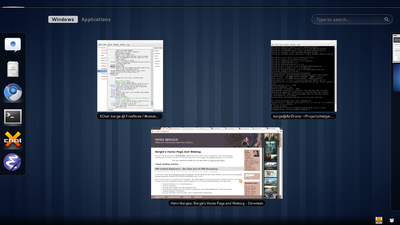Linux as an oral tradition
Today was a home day, perfect for doing some reading. And one of the things I read was the 2004 refresh of Neal Stephenson's In the Beginning was the Command Line. The commentary included following passage, which immediately rang a bell:
New users of Linux are almost always exposed to it through a member of the userbase, insuring that they have at least one person on-hand who can answer their inevitable questions and undo their horrible mistakes. The above is a romanticized description of the Linux experience, because it implies that the ubiquitous Linux veteran is not a factor. Unfortunately, Linux was not designed for end-to-end ease of use -- in that respect, it was not "designed" at all.
This is indeed the way I, and many people I know got into both Linux and Free Software. Of course there are some who have just downloaded Ubuntu or Midgard and started using and eventually contributing to it "out of the blue". But most get into these communities through sort of oral tradition, by having friends who introduce the technologies to them.
If we accept that the grapevine is our best marketing tool, what sort of actions should we take to make it more successful? We obviously need to address some real-world problem with our technology. But we also need a compelling story that people will want to pass on, made even easier if it is a comparison with some unpopular player in the tune of "like Windows but doesn't crash".
And if we want to get the bandwagon rolling, we need to support our "software missionaries" somehow. That can mean free CDs or T-shirts, but could it also mean some sort of web services? Something new on top of the traditional project infrastructure of IRC channels and mailing lists?
Technorati Tags: freesoftware, marketing

